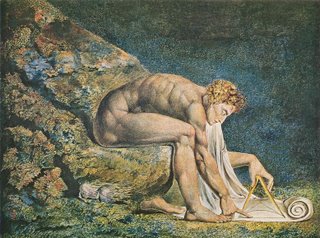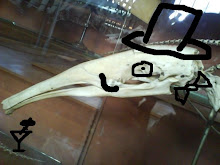
If there is one thing that gets me all excited and ranting on like a 10 year old off his mash on sunny-D and Haribo with a book on dinosaurs and a spiderman costume (other than the action of Tgf-beta signaling in mammalian branchial arch development, now *that* is sexy stuff) then it's the enlightenment. I know, I'm a cool dude.
Those enlightenment men in wigs brought us modern science and medicine. They traveled the world, collecting and describing the natural world, and in doing so laid the foundations for Darwin and his chums; crazy geniuses kick started what has become the dark arts of physical science; anatomy, physiology and pathology were studied, bringing about modern medicine and surgery; and they realised that they, human beings, had the ability to manipulate, tinker and generally arse about with the natural world in order to understand it's hidden mechanincs. But the best thing was, many of them were polymaths. It was BRILLIANT! And that is just the science. It can be argued that none of that would have been possible if it wasn't for the philosophy that defines the enlightenment. I love it. Which is why I got all excited when I was told of the e-Enlightenment Project. The Universities of Oxford, Cambridge, Edinburgh, Duke, Wales, Johns Hopkins and Delaware, as well as Norstedts, Meiner, the Virginia Historical Society, the Voltaire Foundation, and now the Oxford University Press have all got together to publish a multitude of enlightenment era writing, right here on the world wide web. God bless 'em.
As you can probably tell from the ranting here, I'm not all that educated in the philosophy and history of the time, so feel free to mock and correct me. I can always learn, and new knowledge can only be a good thing: that's surely a post enlightenment sentiment.

